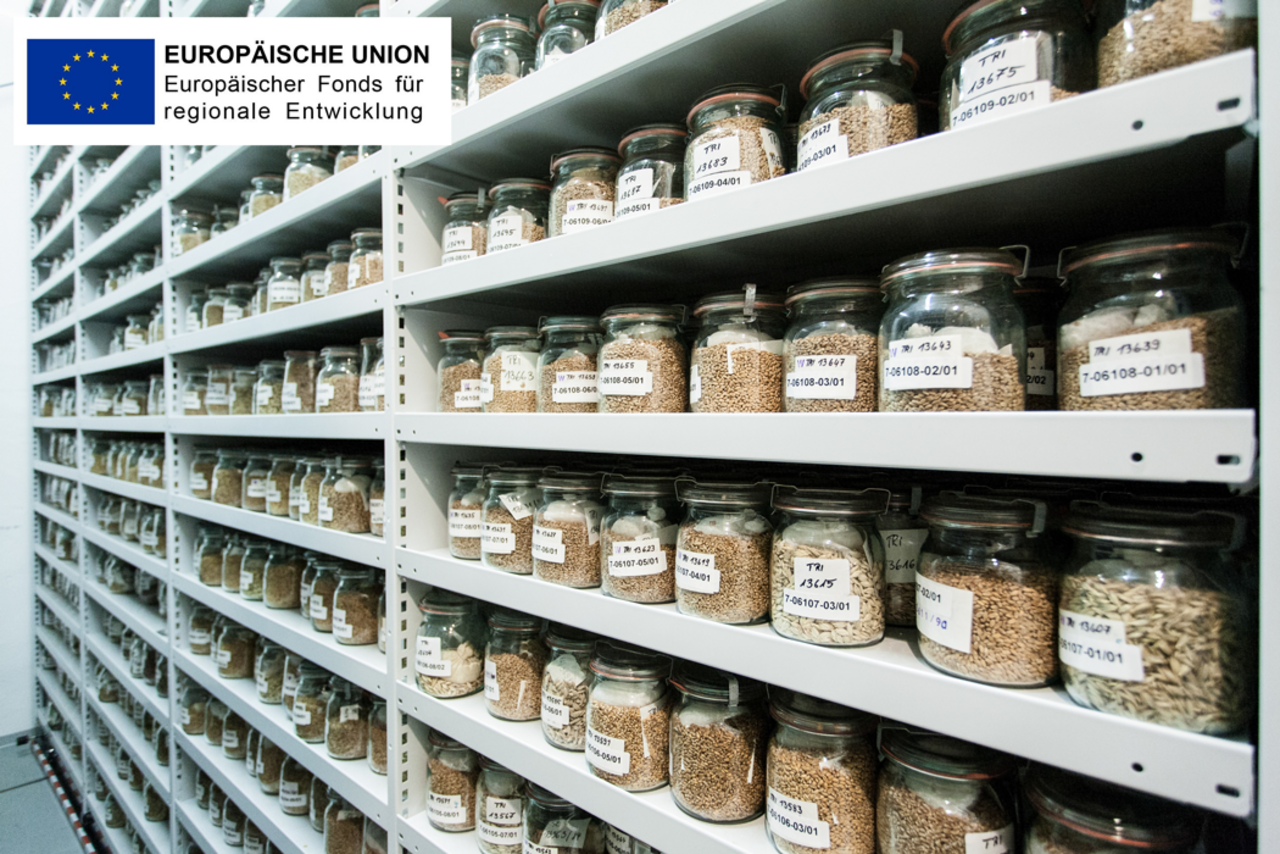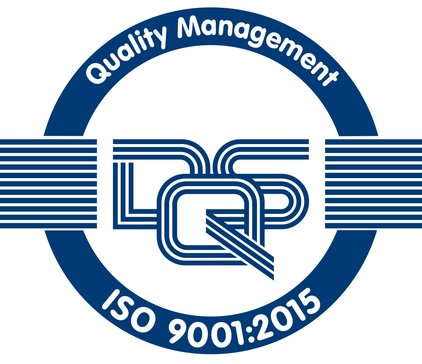Gene Bank
Gene Bank
The Federal Ex situ Gene Bank is one of the world's largest plant germplasm collections, both in terms of the botanical diversity represented and the number of accessions held: currently its holding comprises 151,348 accessions, spanning 92 families, 758 genera and 2,912 species.
The Federal Ex situ Gene Bank is deeply integrated into the research structure of the IPK. It is an integral part of the research department "Genebank". The core responsibilities of the Federal Ex situ Gene Bank are to collect, conserve and characterise its plant genetic resources and to conduct research and development relevant for plant genetic resources conservation.
The bulk of the collection is stored as seed, housed in cold rooms maintained at -18°C, under which conditions seed viability typically lasts several decades. Materials not able to be stored as seed are either maintained as permanent crops in the field, subjected to in vitro culture or cryopreserved. The latter procedure, which involves storage under liquid nitrogen at -196°C, is applied to over 2,000 accessions, including 1,730 of potato.
The collection is spread over three sites: the main site is on the Gatersleben campus, while the other two are located in Malchow (oil and fodder crops) and Groß Lüsewitz (potato). Germination tests are carried out on a regular basis as a quality control measure. Multiplication/rejuvenation is carried out either under glass or in the field, with emphasis placed on maintaining the homogeneity of each accession. Around 7,000 entries are grown out every year.
In addition to its living collection, the Federal Ex situ Gene Bank also curates a herbarium comprising 446,656 specimens, 109,387 reference seed and fruit samples and 56,609 cereal/grass spikes. Since 1948, users based in both Germany and elsewhere have been supplied with over 1.1 million samples.
Security duplicates of seed of more than 54,000 of the accessions (about 36% of the collection) have been deposited at the Global Seed Vault in Svalbard, Norway.
The utility of any genetic resource is heavily dependent on the body of metadata associated with it, including its passport (geographic origin and taxonomic classification), its agronomic performance, its biochemical characteristics, and - increasingly - its genotype in the form of DNA sequence. These data are available online via the Gene Bank Information System. The marriage of biological resource with digital information is in line with the Federal Ex situ Gene Bank’s mission to become a bio digital Resource Centre.
To support the coordinated conservation of genetic resources at both the national and international level, the Gene Bank works closely with the German Federal Ministry of Food and Agriculture, Bioversity International, and the European Cooperative Programme on Plant Genetic Resources. In this context, the Gene Bank is responsible for the operation and further development of the EURISCO catalogue.
The IPK Genebank Information System (GBIS) offers the possibility to obtain information about the holdings of the Federal Ex situ Collection by specifying free or scientific search criteria. After creating a user account you have access to the integrated ordering system.
Click here for GBIS.
The certification of the quality management of the Federal Ex situ Gene Bank at the IPK Leibniz Institute was renewed until the end of March 2025.
Modernisation of the Satellite Collections North (TEN)
Currently, the infrastructure at both the Malchow and Groß Lüsewitz sites is being modernised. The measures are co-financed by the European Union from the Regional Development Fund and include the modernisation of the structural-technical infrastructure of the Satellite Collections North at the Malchow and Groß Lüsewitz sites of the Leibniz Institute of Plant Genetics and Crop Plant Research (IPK). Further information can be found here.

